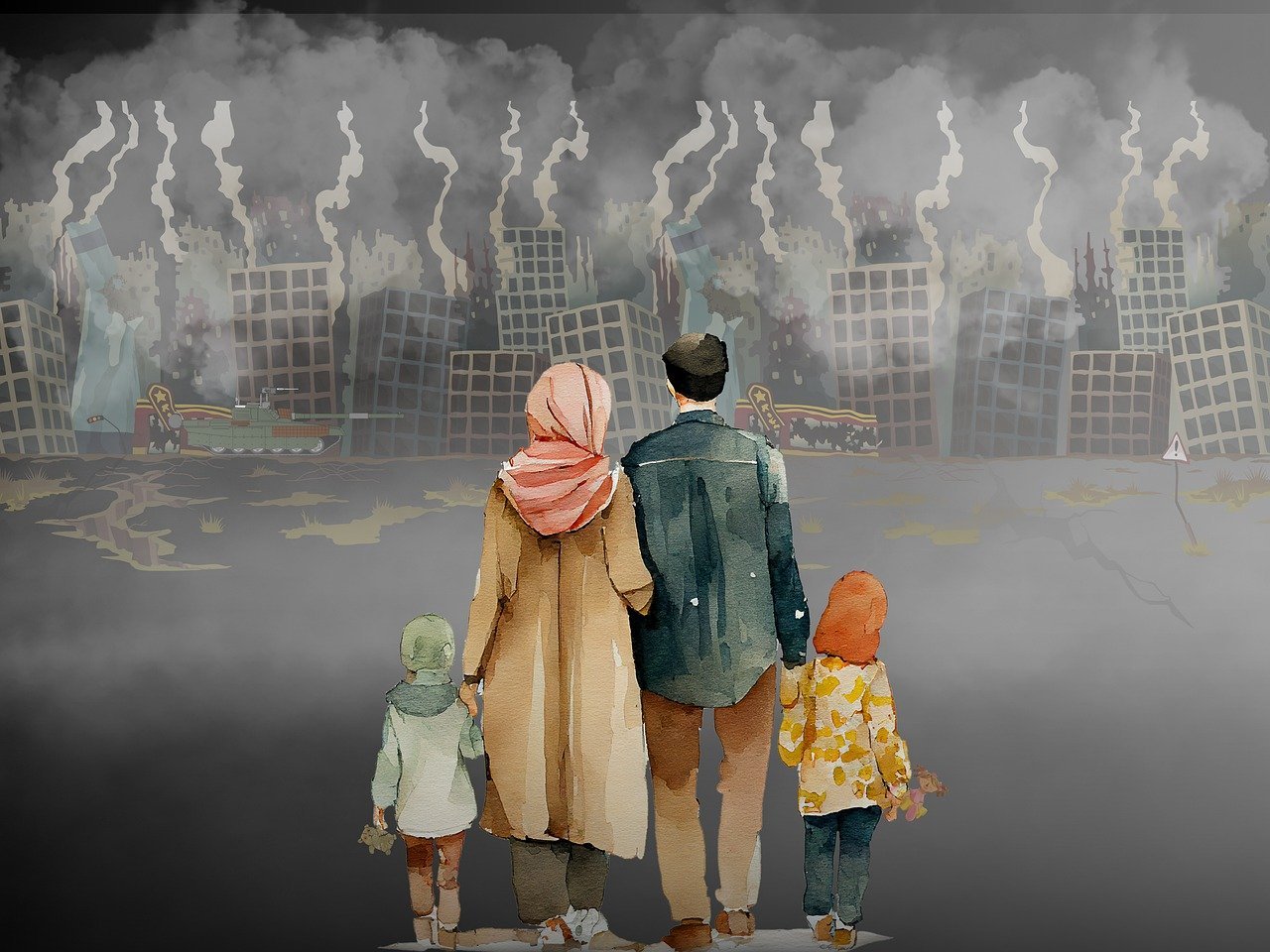The Syrian refugee crisis, one of the largest humanitarian crises of the 21st century, has had a profound impact on the global community. This article will delve into the origins, scope, challenges, and ongoing efforts to address this complex crisis.
Origins of the Syrian Refugee Crisis
The Syrian Civil War, which began in 2011, is the primary driver of the refugee crisis. The conflict, fueled by political unrest, sectarian violence, and the intervention of foreign powers, has led to widespread destruction, displacement, and loss of life. Millions of Syrians have been forced to flee their homes, seeking refuge within Syria or in neighboring countries.
The Scale of the Crisis
The Syrian refugee crisis has reached unprecedented proportions. Millions of Syrians have been displaced, both internally and externally. Neighboring countries like Lebanon, Jordan, Turkey, and Egypt have borne the brunt of the influx, straining their resources and social services. The crisis has also led to significant refugee populations in Europe, North America, and other parts of the world.
Challenges and Consequences
The Syrian refugee crisis has presented numerous challenges for governments, humanitarian organizations, and individuals. Some of the key challenges include:
- Housing and Shelter: Providing adequate housing and shelter for millions of displaced Syrians has been a major challenge. Many refugees live in overcrowded camps or makeshift settlements.
- Education: Ensuring access to education for Syrian children is crucial for their future and the stability of the region. However, many refugee children are unable to attend school due to lack of resources or security concerns.
- Healthcare: Providing essential healthcare services to refugees, particularly in conflict zones, is a major humanitarian challenge. Many refugees lack access to basic medical care.
- Economic Integration: Integrating refugees into host communities can be difficult due to language barriers, cultural differences, and limited job opportunities.
- Security Concerns: The refugee crisis has raised security concerns in many countries, including fears of terrorism and radicalization.
International Response
The international community has responded to the Syrian refugee crisis with a mix of humanitarian aid, resettlement programs, and diplomatic efforts. However, the scale of the crisis has overwhelmed the capacity of many countries and organizations.
- Humanitarian Aid: Numerous humanitarian organizations have provided essential aid to Syrian refugees, including food, shelter, and medical care.
- Resettlement Programs: Several countries have implemented resettlement programs to provide safe havens for Syrian refugees.
- Regional Cooperation: Efforts have been made to promote regional cooperation and burden-sharing among countries hosting Syrian refugees.
- Diplomatic Efforts: International diplomacy has focused on finding a political solution to the Syrian conflict and addressing the root causes of the refugee crisis.
Ongoing Challenges and Future Prospects
Despite the efforts of the international community, the Syrian refugee crisis remains a complex and ongoing challenge. The conflict in Syria continues to rage, and the humanitarian needs of refugees remain immense. Addressing the crisis will require sustained international support, regional cooperation, and a long-term commitment to rebuilding Syria and its communities.
The Syrian refugee crisis is a stark reminder of the human cost of conflict and the importance of international solidarity. As the world continues to grapple with this humanitarian disaster, it is essential to find sustainable solutions that address the needs of millions of displaced Syrians and promote peace and stability in the region.










